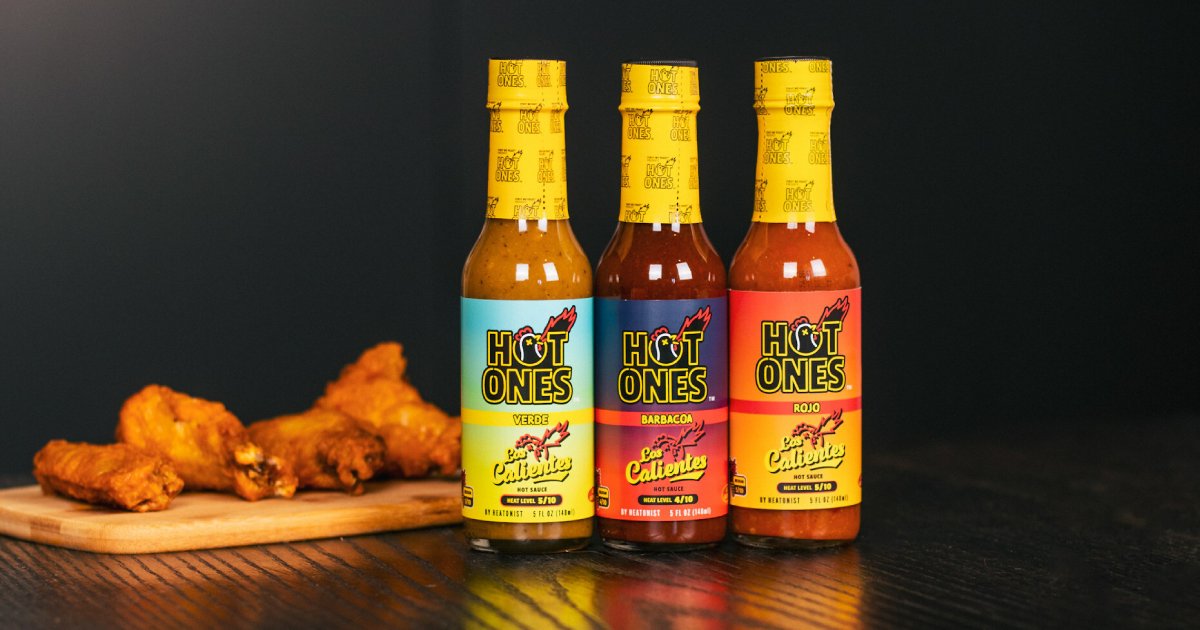Specialty Foods Increase Appetite for Licensing

By Mark Seavy
As specialty foods move into the mainstream, they’re developing a deeper appetite for licensing. At the recent Summer Fancy Food Show in New York, licensed offerings were spread across a range of categories, touching on everything from coffee and tea to hot sauces to chocolates.
The broadening reach of licensed products comes as specialty foods accounted for 21.6% of U.S. grocery sales ($206.8 billion) in 2023, according to the Specialty Food Association (SFA). This was an increase from the $88 billion reported 10 years earlier, and takes in grocery, eCommerce, and food service channels.
While sales have slowed a bit—a 5.1% increase is forecast for this year, down from 2023 (5.3%) and 2022 (8.1%)—the category continues to connect with consumers. Chips, pretzels, and snacks are the top seller, followed by cheese and plant-based cheeses, and entrees, snacks, and sides, according to SFA, which lists products across 63 categories. About half of consumers (44%) who shop at a primary store also make a side trip to specialty food retailers for products not found at their main location, SFA said. Those secondary stores represent $1,200 in annual sales per household.
“Many consumers see value in licensed brands because they are universally known,” said Jonathan White, EVP at White Coffee Co., which has licenses for a variety of brands, including most recently with Mars for Twix, Snickers, and others. “We are never going to be able to compete financially with Dunkin’, Starbucks, or Keurig financially, so we stay in our lane and try different licensed brands.”
Using beloved brands to create a point of difference can be crucial because specialty food licensees sell at a premium that reflects higher production costs as well as minimum guarantees and royalties. And with inflation, tighter consumer spending, and the recent rise in prices for cocoa and coffee, it can be a daunting task to gain shelf space. McSteven’s announced Paramount-licensed Teenage Mutant Ninja Turtles hot chocolate mix and recently signed a new agreement with Warner Bros. Discovery. Tea supplier Republic of Tea, meanwhile, is shipping a Bridgerton-licensed line. And for some licensees, it’s about spreading the business across distribution channels. World of Coffee, which is a licensee for Brown-Forman’s Jack Daniels brand, sells through mass and specialty as well as liquor stores, said Julie Newman, VP at World of Coffee.
“Consumers are much more price conscious, and it is hard to come out with a licensed product because of the royalties and [minimum guarantees]. You have to figure out whether it is worth the investment,” Newman said. “Licensors are sometimes very eager for agreements, but unrealistic about their expectations for launching the products.” In the case of World of Coffee, it typically takes upwards of a year to develop a product, while licensors want them available sooner.
One category that is receiving increased investment is hot sauces. About 65 brands have been introduced in the past year, further filling an already crowded market. The value of the U.S. hot sauce market is forecast to increase 5% annually through 2031 to hit $15 billion, as investments in healthier and natural foods drives demand, according to Transparency Market Research.
And new entrants in the business, many of them non-licensed, were plentiful at the Summer Fancy Food Show. Black Mamba Foods developed its namesake brand hot sauce using materials harvested in Eswatini (formerly Swaziland in Southern Africa). And the Caribbean-style hot sauce Mr. Joe’s combines ghost peppers with red chili and is packaged in five-ounce bottles.
On the licensed side, New York-based Heatonist, which has two stores, also produces hot sauces under a licensing deal with the YouTube show Hot Ones, which also has an agreement for Nestle’s Hot Pockets brand. The sauces are created based on the show, which involves celebrities being interviewed while consuming increasingly spicy chicken wings. A 10-pack for the recent Season 24 range sells under the “Stay Spicy” logo for $120.
“A lot of companies may churn out [of the business], but hot sauces have a long tradition where companies will have a local presence and you don’t have to get big,” Heatonist CEO Noah Chaimberg said. “It is really community-driven and consolidation hasn’t happened yet, partly because it takes time to scale up a business. For a long time, hot sauces have been more of a souvenir, but now they are going mainstream.”




